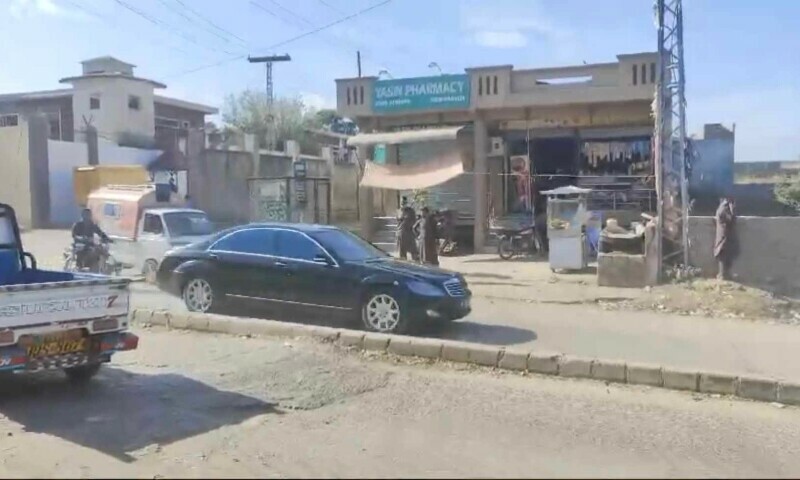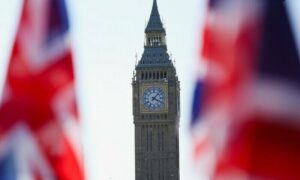Bushra Bibi, the wife of incarcerated ex-premier Imran Khan, was released from Adiala Jail on Thursday a day after being granted bail in a recent Toshakhana case, ending nearly nine months of her detention.
The former first lady was taken into custody on January 31 after an Islamabad accountability court sentenced her and Imran to 14 years in jail in the Toshakhana reference.
Bushra had been kept at Adiala Jail, where the PTI founder also remains incarcerated since his arrest on August 5 last year in a separate Toshakhana case.
Imran and Bushra were apprehended in the case on July 13, following their acquittal in the Iddat case the same day. The next day, the already imprisoned politician was “arrested” in connection with a dozen May 9 cases.
In the most recent case, the Federal Investigation Agency (FIA) has accused the couple of retaining an expensive Bvlgari jewellery set gifted by a foreign leader — including a necklace, earrings, bracelets, and rings — at a low price, saying it caused significant loss to the exchequer.
A day ago, the IHC had approved Bushra’s bail in the same case, following which a special court issued her release orders today.
Special Judge (central) Shahrukh Arjumand issued the release orders for Bushra Bibi today, a copy of which is available with Dawn.com.
Bushra’s counsels Malik Tariq Mehmood Noon and Sohail Satti submitted the surety bonds worth Rs1 million for her release, as ordered by the IHC a day ago.
“The bail of the accused in the above-mentioned case has been approved by the high court,” the release order said, adding that “if the accused is not wanted in any other case, then they should be released on confirmation”.
IHC orders Imran’s production in court by 3pm
Separately, the IHC on Thursday ordered that Imran be produced before the court, and be allowed to have a virtual meeting with his lawyers there.
Today, Justice Sardar Ejaz Ishaq Khan took up a Advocate Faisal Chaudhry’s contempt petition against Adiala jail authorities for not allowing meetings with Imran despite previous court orders.
Earlier this month, the Punjab government, citing security concerns, banned meetings with prisoners at Adiala jail till October 18, which was then extended for an indefinite period.
Adiala Jail Superintendent Ghafoor Anjum appeared before the court today on its orders, along with the additional attorney general and state counsel.
Ordering Anjum to present Imran in the court by 3pm and have him hold a virtual meeting with his lawyers, Justice Khan also told him to explain the reasons if the order was not acted upon.
The hearing
At the outset of the hearing, Justice Khan, referring to the ban on prisoner meetings, asked: “Are you saying that the government can stop the process of providing justice with a single notification?”
The state counsel replied that since court hearings had not been taking place, Imran’s meetings had not been arranged either.
Justice Khan then noted that the petitioner had argued that a court order had been violated via a notification.
“I am not saying whether the notification is correct or not; they will have to file a separate petition for that [matter],” he clarified. “However, denying a meeting despite court orders is violation of court orders.”
To this, the state counsel informed the court about the ban on prisoner meetings by the Punjab government based on a law and order situation.
“Have meetings with lawyers also been banned?” the judge asked. He said “those who issued the notification also committed contempt of court”, adding that if the Punjab government barred lawyers’ meetings then it was contempt of court.
Justice Ishaq said the interior ministry should submit a report detailing what the security reasons were.
Here, the petitioner’s counsel informed the court that no lawyer has been allowed meetings at Adiala Jail since October 3.
The court questioned what the results would be if this was not genuine. “I will ask on camera those who wrote the letters.”
“I will put my hand on the Quran and ask whether they will give an affidavit and this was really the position,” the court said.
“If we all go to jail are we all some security threat?” Advocate Shoaib Shaheen asked.
Justice Khan ordered the jail authorities to produce Imran in the court by 3pm, and arrange his meeting with his lawyers via video-link at the court.
Along with summoning the interior ministry’s joint secretary along with relevant records, the judge issued notices seeking judicial assistance from Attorney-General for Pakistan Mansoor Usman Awan.
“I am aware that you will not implement my court orders,” Justice Khan remarked, adding that the court would be accorded respect if Imran was presented in court.
Addressing the jail authorities, the judge ordered: “You should make [necessary] security arrangements and present the PTI founder in court.
“If you cannot do so, you must inform the court tomorrow about the reasons,” Justice Khan stressed.
“You must satisfy the court about the security threat due to which you might not present him,” he told the jail superintendent.
Case history
In September, Special Judge Central Shahrukh Arjumand had set the couple’s indictment in the case for October 2. However, it was deferred to October 5 on the defence counsel’s request for more time. A day prior to that, Judge Arjumand had rejected their post-arrest bail petitions.
On Oct 23, the IHC approved Bushra’s bail plea in the case.
In its reference filed with the court, the National Accountability Bureau
(NAB) has accused Imran and his wife of illegally retaining the jewellery set gifted to Bushra by the Saudi royal family during their visit to the kingdom in May 2021.
In its reference, the anti-graft watchdog further alleged that during his term as prime minister, Imran and his wife had received a total of 108 gifts from different heads of state and foreign dignitaries.
Of those gifts, they allegedly retained 58 gifts against an undervalued amount of over Rs142m. “Out of these 108 gifts, the accused persons retained 58 gift boxes/sets against an undervalued amount of Rs142.1 million as assessed by appraisers,” the reference said.
After the Supreme Court upheld amendments to NAB laws in September, the case was transferred to an FIA special court from an accountability court.
More to follow







